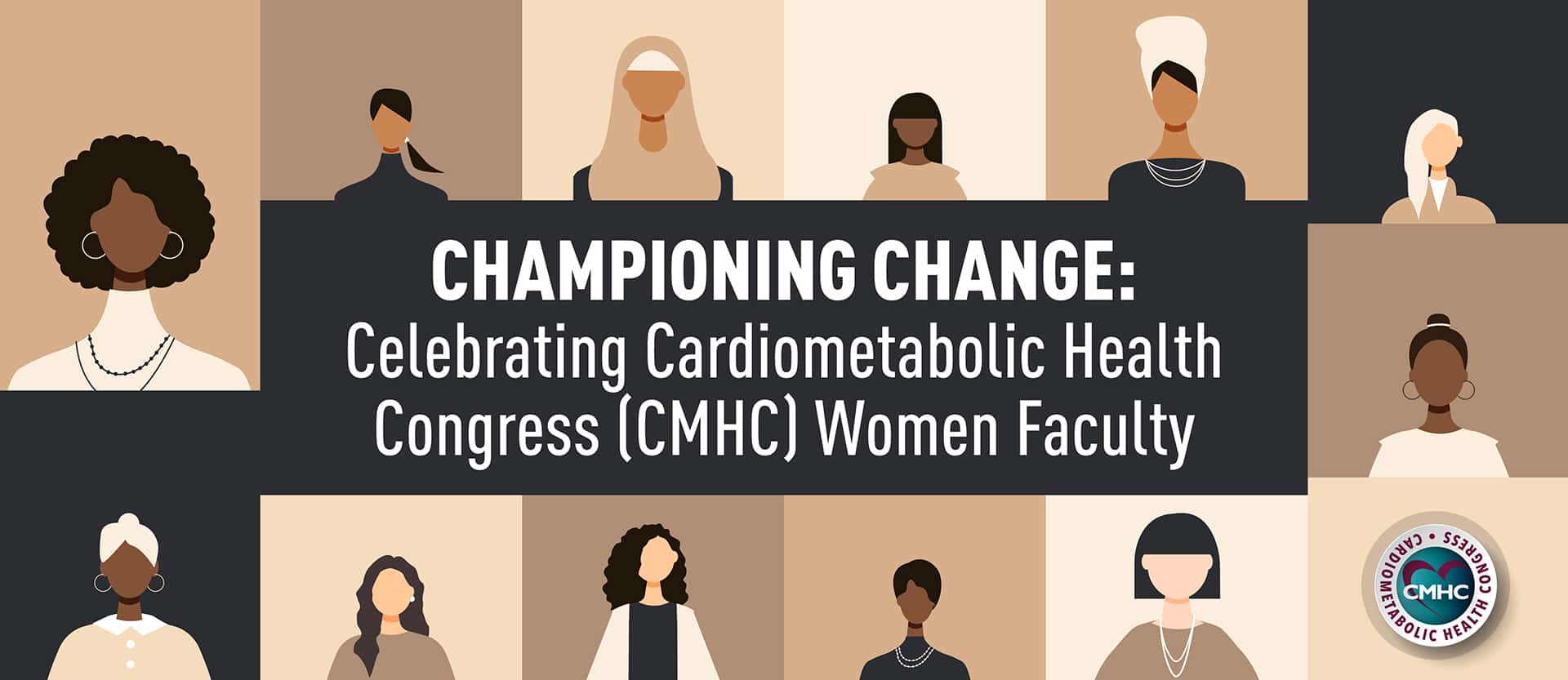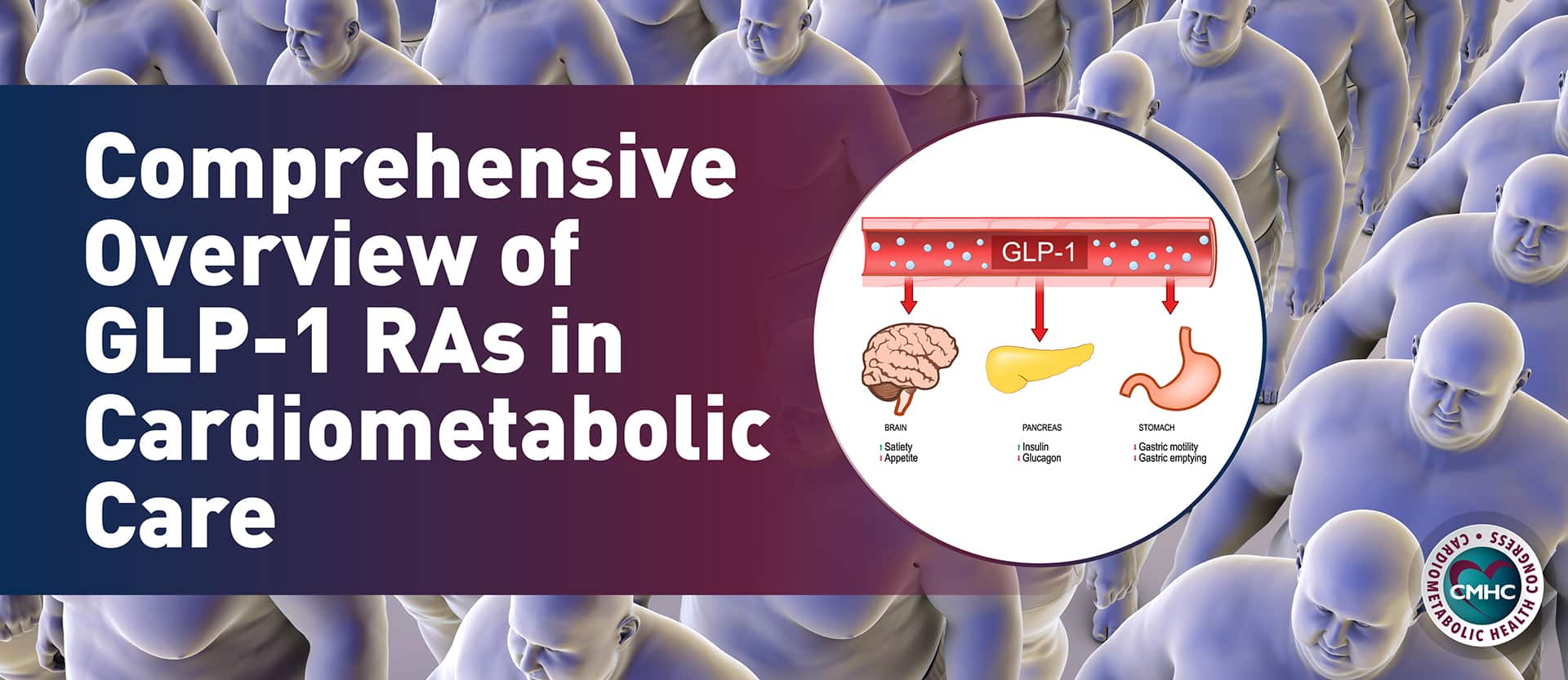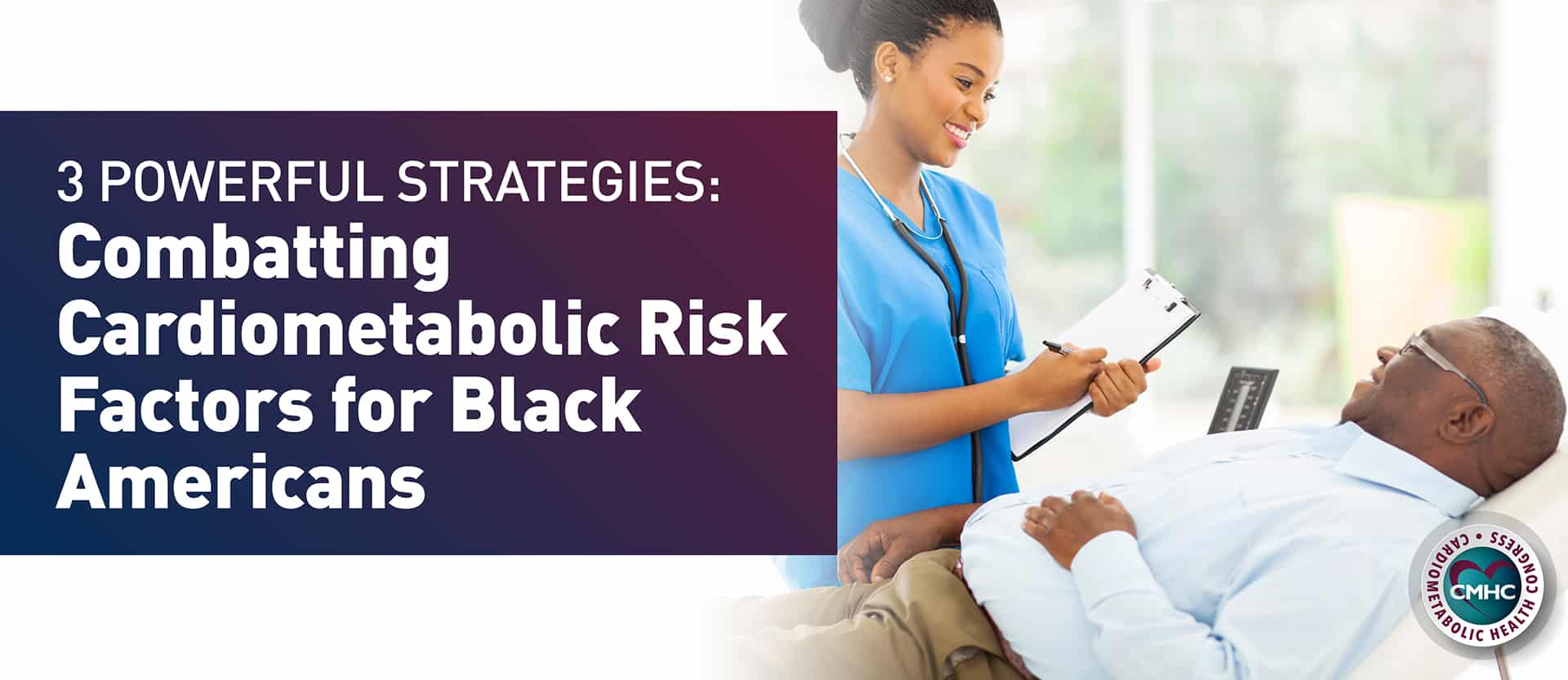On Wednesday, Dec. 7, 2022, many providers tuned into the virtual webinar from Cardiometabolic Health Congress (CMHC) and Carl J. Streed, Jr., MD, MPH. In Cardiovascular Health of LGBTQ Populations, Dr. Streed presented insights on how providers can use existing data and resources to improve the cardiovascular outcomes of their patients who identify as members of sexual- and gender-minority populations.
Terminology: The definition of SGM
Dr. Streed began the webinar, Cardiovascular Health of LGBTQ Populations, by introducing listeners to the National Institutes of Health Sexual- and Gender- Minority (SGM) Research Office’s definition of SGM populations. Because the definition of SGM is lengthy and includes many expressions of gender, sexuality, and behavior, Dr. Streed conveyed his preference to define SGM by what it is NOT: “It really boils down to anybody who is not straight and/or cisgender falling under the umbrella of sexual- and gender-minority.” While it’s important to know the current terminology, Dr. Streed noted that vocabulary and concepts are fluid; they change within communities and in clinical practice, so it’s important for providers to remember it’s okay to ask patients what they prefer. He cautioned as well against the common error of relying on an individual’s way of dressing, speaking, or other external behaviors to inform their sexual or gender identity.
LGBTQ-specific stressors lead to poor cardiovascular health
Dr. Streed continued his presentation by addressing specific mechanisms underlying disparities in the cardiovascular health of LGBTQ individuals. Stressors such as the fear of discrimination and violence can lead to interpersonal self-stigma that results from years of negative thoughts being internalized. These expectations of rejection result in hypervigilance, stress, anxiety, and leaning on unhealthy coping mechanisms like using alcohol or tobacco. Additionally, feeling unsafe in recreational settings may inhibit exercise and physical activity, which are closely related to the development of obesity.
Tobacco use in the LGBTQ population
One compelling topic Dr. Streed spent time discussing was the prevalence of smoking tobacco in the LGBTQ community. The disproportionately high use of tobacco in LGBTQ and SGM populations has a significant impact on cardiovascular health.
“We know tobacco is bad, our patients know tobacco is bad, but LGBTQ individuals smoke tobacco more than their cisgender peers. We’ve seen discrimination and stress influence people’s choice to pick up these habits, perhaps because bars have long been a safe haven where members of sexual- and gender-diverse people can connect with members of their communities.”
Not only does stress lead to unhealthy coping behaviors, studies have demonstrated that tobacco companies target bars and communities where members of SGM populations frequently gather.
The need for better tools
Dr. Streed acknowledged that despite all this data we have regarding gaps in care and outcomes for LGBTQ patients, the clinical tools are still limited. The standard self-reported ASCVD risk assessment tool, for example, asks for race and gives a range of options but asks only for a narrow ‘male” or ‘female’ sex. What constitutes male or female? Five or 10 years since transition? Is there a standard on how long someone needs to be on hormone therapy to be considered male or female? A leading society on transgender rights in California has offered a standard of five years since transition, but that’s just an informed suggestion at this point. “This question is really significant because cardiovascular risk differs between genders – estrogen generally lowers risk while testosterone raises it,” said Dr. Streed.
Conclusion
Dr. Streed provided closing suggestions for how both research and clinical practice can take strides to close the gaps in cardiovascular care for LGBTQ patients. These include:
- Ensure collection of sexual orientation and gender identity data in electronic health records through providing clinicians with training on LGBTQ health disparities and the proper assessment of sexual orientation and gender identity in health care settings
- Incorporate LGBTQ content in the curricula of health professions schools and postgraduate training
- Require continuing education on LGBTQ health for all practicing clinicians that includes content on cardiovascular health disparities
- Familiarity with local resources and LGBTQ-specific support groups and interventions such as tobacco cessation, exercise and weight management groups, etc.
- Develop standardized sexual orientation and gender identity measures and integrate these in current and future NIH-funded cardiovascular prospective cohort studies to allow for data harmonization
- Integrate biobehavioral measures into cardiovascular research with LGBTQ populations
- Leverage electronic health record data to increase understanding of LGBTQ cardiovascular health
- Partner with LGBTQ communities for measurement development, study design and conduct, and research dissemination to ensure research reflects the needs of LGBTQ adults, especially stigmatized groups
- Develop and test multilevel interventions for cardiovascular risk reduction in LGBTQ adults
- Examine social and clinical determinants of cardiovascular health in LGBTQ adults
- Characterize the role of resilience in buffering the cardiovascular effects of stress in LGBTQ people
In his final slide, Dr. Streed thanked his colleagues at Boston University Chobanian & Avedisian School of Medicine, experts in transgender, and institutions such as his for ensuring this topic gets incorporated into the medical education curriculum.
Audience Q&A
With a few minutes remaining, Dr. Streed answered questions from the audience via the platform’s interactive Q&A feature. Tune in to the webinar if you are interested in hearing him discuss his experience and thoughts on the following questions posed by viewers:
- Smoking with nicotine can be used to mask/self-treat anxiety/depression, any work to help here?
- You indicated that gay men have lower BMI. However, gay men have higher rates of eating disorders and body dysmorphia. So, although obesity may not be as prevalent with gay men, there are other issues around weight in gay men that should be assessed and treated.
- Any insights around cardiovascular disease with individuals with disorders of sexual development/intersex?
- There are also studies that show that the LGBTQ population has higher rates of social determinants of health which likely impact cardiovascular health status – any insights on this?
- Do we know anything about the risk of venous thrombosis in the transgender population, specifically in transgender women on estrogen therapy? Sounds like there is a known heightened risk for certain arterial events in the trans population but wondering if there are any known links to venous events as well
- Is there data regarding maternal health outcomes (such as hypertensive disorders of pregnancy and related mortality) in LGBTQ people?
- This might be in the resources you highlighted in your PowerPoint, but how would you recommend starting discussions about transitioning to more inclusive language/questions in intake paperwork and EMRs? (especially from the perspective of a medical student)
- Any comments about the transition of the term gender dysphoria in ICD-10 to gender incongruence in ICD-11; and the impact of this terminology change on clinical care and strategies?
- Are there important differences when assessing cardiovascular & cardiometabolic risk in LGBTQ populations that clinicians should consider?

















